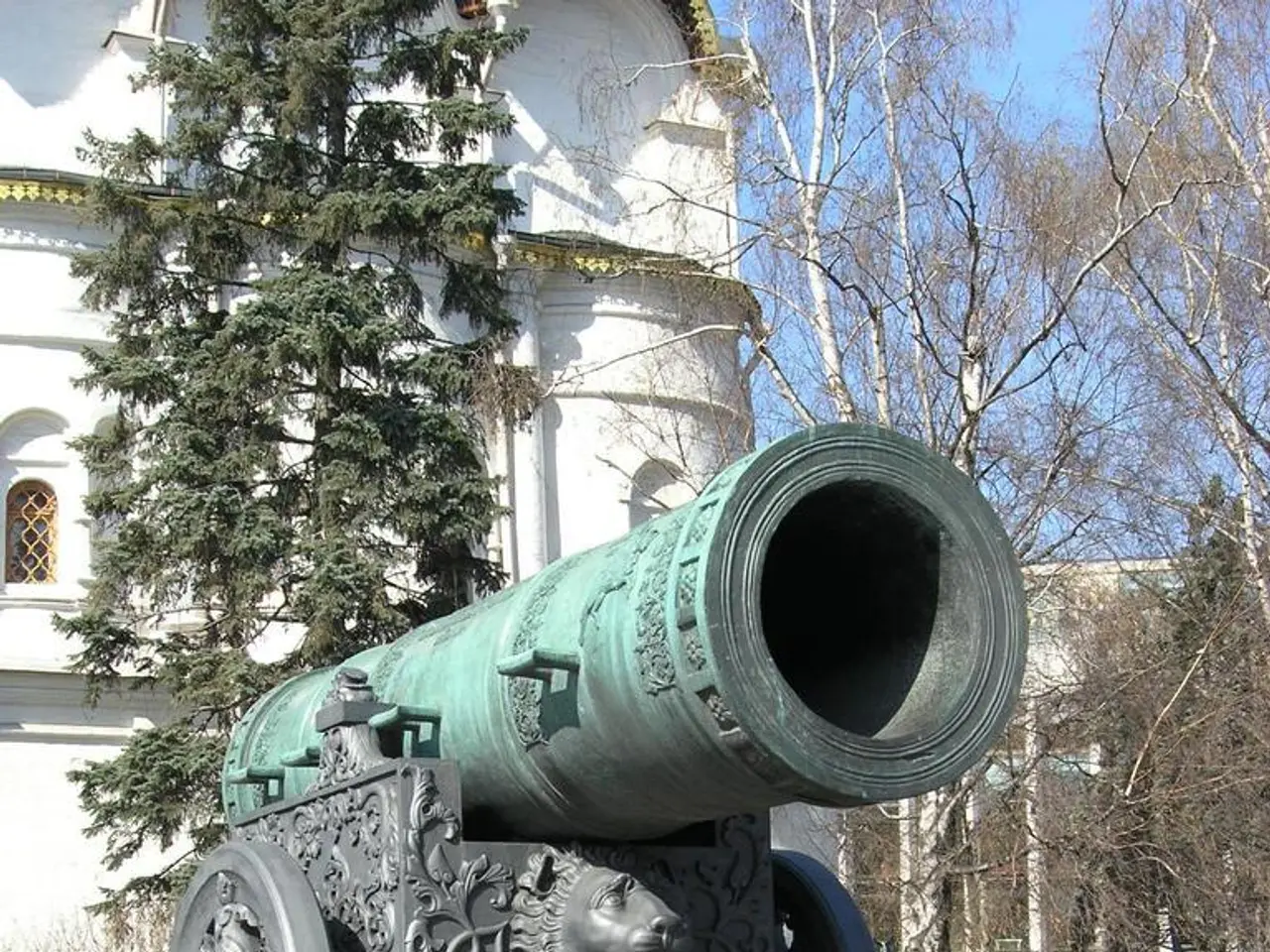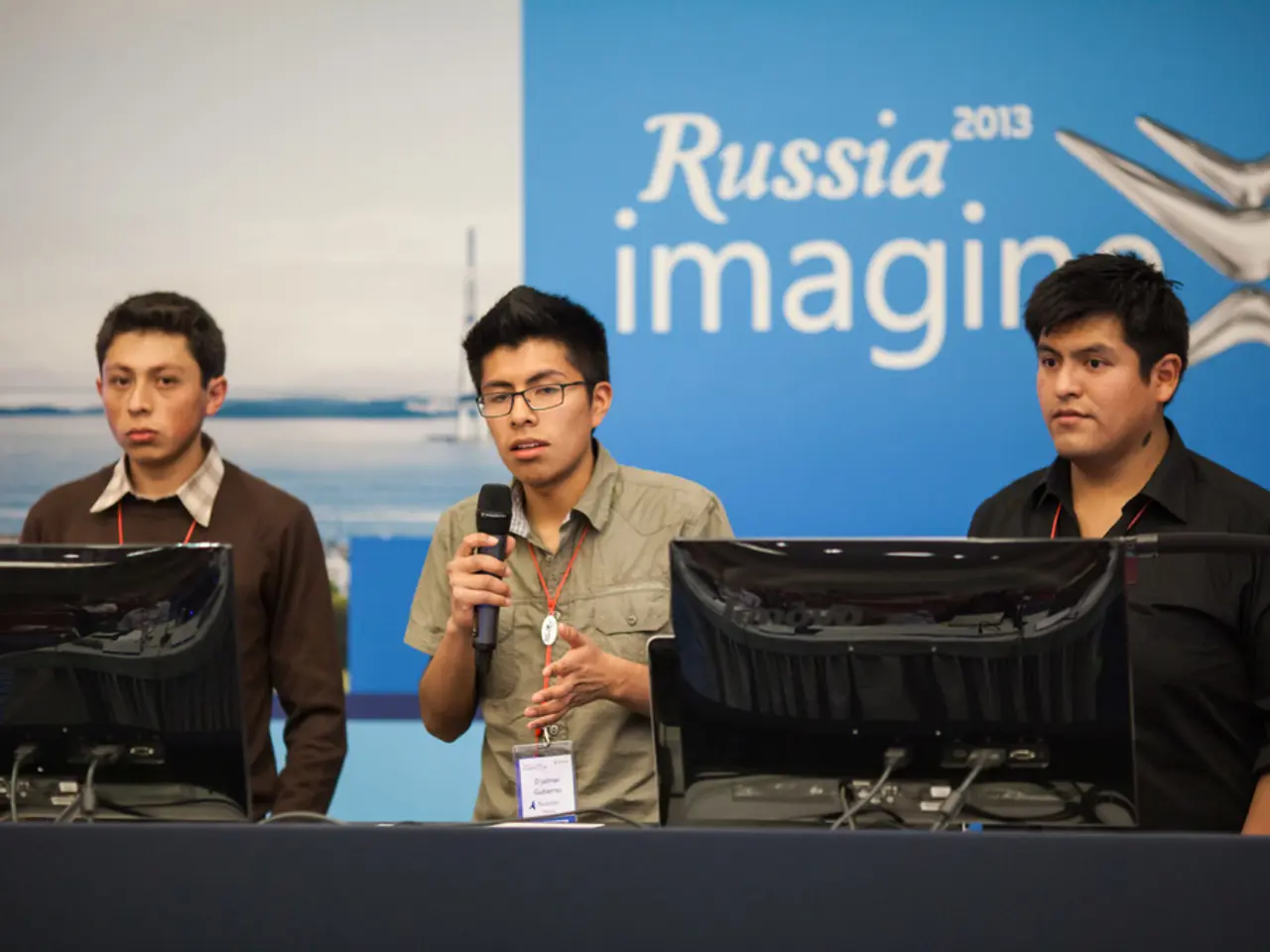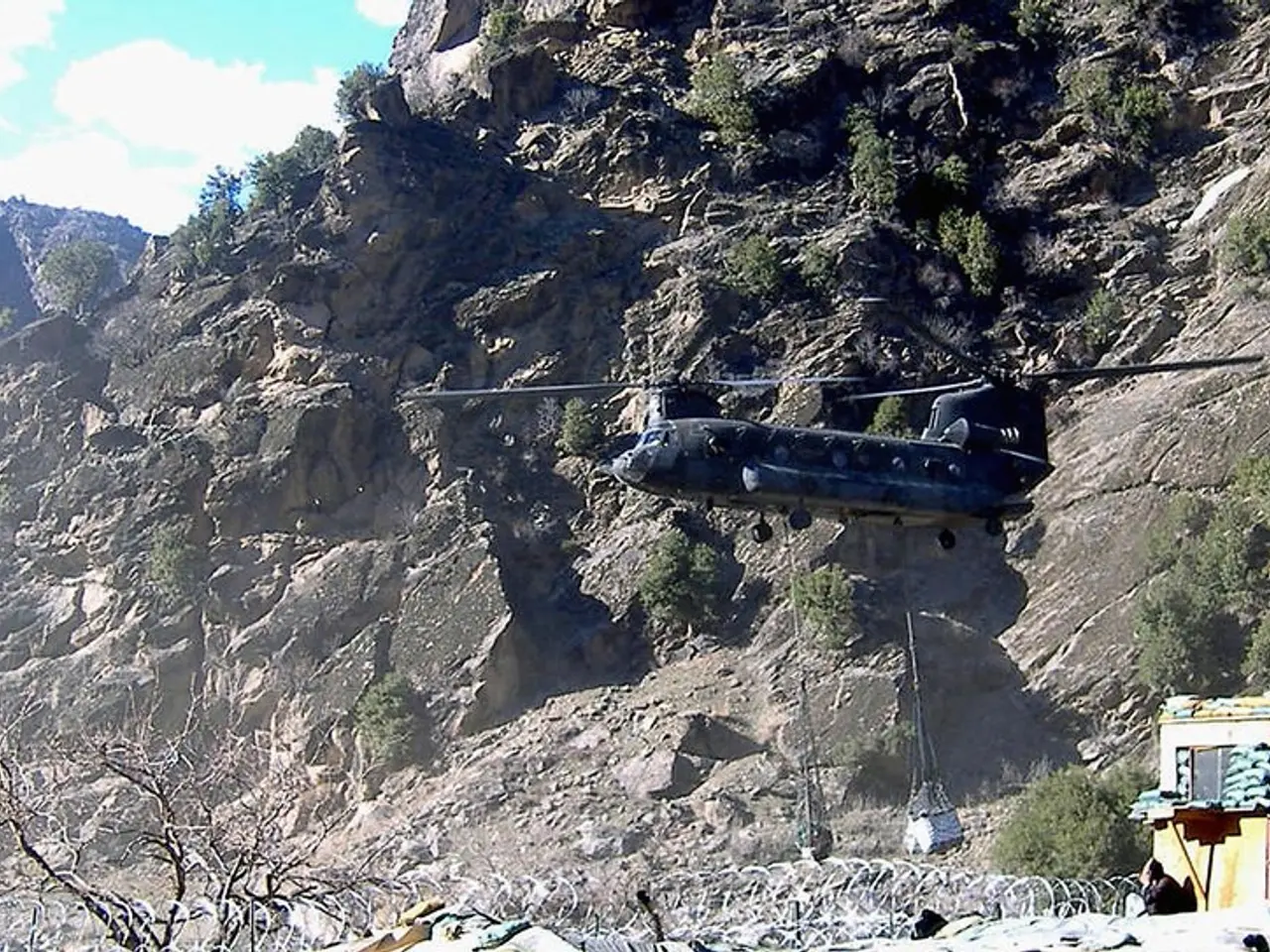Rapid Army Expansion Advocated by President Rinkevics in Latvia
The Latvian government has announced an ambitious plan to expand the National Armed Forces (NBS), aiming to increase the active service troops to around 31,000 and the reserve army to 30,000 over the next few years. This expansion, outlined in the NBS development plan 2025-2036, is a response to regional security concerns and a commitment to strengthen Latvia's defense capabilities [1][2].
The plan consists of 4,000 State Defense Service soldiers serving for 11 months, 8,000 professional service soldiers, 12,000 National Guards, and 7,000 high-readiness reserve soldiers [1]. However, mass deployment and training of soldiers is not currently feasible due to infrastructure and instructor constraints [1][3].
The President and Prime Minister, Evika Siliņa, have expressed their intention to speed up the implementation of this plan [1]. To achieve this, the NBS is working on addressing both infrastructure and instructor needs [1][3]. The NBS Commander has outlined a plan for the numerical composition of the National Defense Forces, which includes the National Guard, reserve troops, professional service troops, and State Defense Service troops [1].
The expansion of the NBS is not just about quantity but also about effective operation and utilization. The President has emphasized the importance of quality trained soldiers, not just numbers [1]. To this end, plans are underway to simplify and make more flexible the recruitment and participation criteria, particularly targeting specialized roles such as drone operators, engineers, and cybersecurity specialists [1][4].
Moreover, the NBS is introducing various forms of engagement, where not all roles require intensive combat training; some roles may have shortened or alternative training pathways to accommodate a wider range of participants [1]. The creation of specialized units, such as a new special operations group inspired by effective Ukrainian ranger units, is aimed at bolstering combat and operational capabilities with a model that allows for a larger, versatile force [4].
In addition, national defense training and culture are being integrated into the general secondary and vocational curricula nationwide since 2024-2025, to build future leaders and prepare youth for possible military service [2]. This move reflects a broader commitment to fostering a national defense mindset among the Latvian population.
The President has also highlighted the importance of adhering to the NATO treaty's Article 3, which requires each country to strengthen its defense capabilities and be able to defend itself [1]. The increased NBS is intended to enable Latvia to meet this requirement more effectively.
In conclusion, Latvia's NBS is actively expanding both its active and reserve components, particularly through the growth of the National Guard, supported by reforms in recruitment, training, and education. This strategy reflects an adaptive approach to modern threats and the need for a comprehensive national defense posture.
[1] "Latvia's National Guard to Double in Size as Part of Defense Modernization," Baltic Review, August 2025. [2] "National Defense Education Integrated into General and Vocational Curricula," Ministry of Defense, September 2024. [3] "NBS Development Plan 2025-2036: Addressing Infrastructure and Instructor Needs," NBS Press Release, October 2025. [4] "Specialized Units and Flexible Recruitment: The Future of Latvia's National Defense Forces," Defense & Security Alert, November 2024.
- The Latvian government, in collaboration with the National Armed Forces (NBS), is working on addressing infrastructure and instructor needs to facilitate the timely implementation of their ambitious plan to expand the military.
- The Latvian President has expressed the importance of not only increasing the numbers of troops but also enhancing the quality of trained soldiers, implying a focus on specialized roles such as drone operators, engineers, and cybersecurity specialists.
- The improvement of Latvia's defenses is not confined to the military alone; the government is integrating national defense training and culture into the general and vocational curricula, aiming to foster a national defense mindset among the population.








